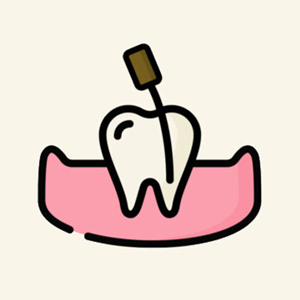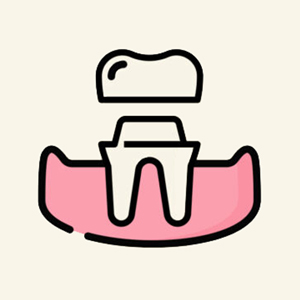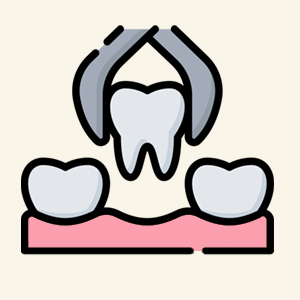Why Choose Chinook Dental Group?
Four Dental Specialties
Receive comprehensive care for four dental specialties.
Appointments Available
Receive timely care and schedule immediate appointments.
No Judgement Services
Receive dental care without feeling embarrassed or uncomfortable.
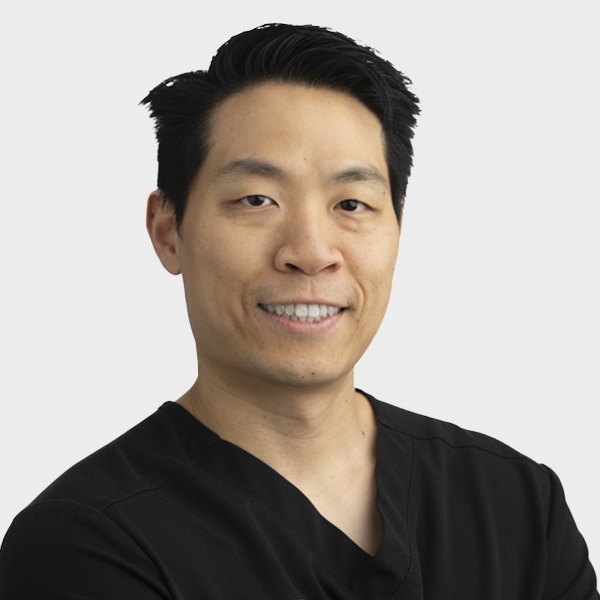
Dr. Choo-Soon Kua, DDS, FRCDC
Certified Specialist in Oral and Maxillofacial Surgery
Dr. Kua is a Certified Specialist in Oral & Maxillofacial Surgery born and raised in Calgary. He received his Bachelor of Science in Kinesiology from the University of Calgary in 2008. Dr. Kua obtained his Doctor of Dental Surgery from The University of Western Ontario in 2012. Following completion of his doctorate, Dr. Kua practiced general dentistry in Calgary and Bowden Correctional Institution for two years before being accepted into and completing his specialty training in Oral & Maxillofacial
Surgery at Montefiore Medical Center in the Bronx, New York. His residency consisted of rotations in anaesthesia, general surgery, otolaryngology, emergency medicine, internal medicine, and critical care medicine. He is trained in all aspects of IV sedation, complex dentoalveolar surgery, dental implants, bone grafting, oral and maxillofacial pathology, and non-surgical temporomandibular joint disorders.
Dr. Kua is excited to offer a broad range of oral and maxillofacial surgery services to Calgary and surrounding areas.
What services does an oral surgeon provide?
Oral and maxillofacial surgery is a specialized field of dentistry that deals with diagnosing, treating, and managing conditions of teeth, gums, jaws, and surrounding areas requiring a surgical approach. The procedures in oral surgery require advanced learning, experience, and skills that are beyond the scope of general dentists. Usually, oral surgeons invest additional years in training and education to be qualified for the job.
The goal of oral surgery is to correct structural issues, remove diseased tissue, enhance the facial appearance and aesthetics, restore the functions of the mouth and jaws, and improve the overall quality of life.
To achieve these goals, oral surgeons perform procedures that range from serial tooth extractions to complex jaw and facial reconstructions. They also treat and prevent conditions that cause significant discomfort, complications, and life-threatening situations.
Oral surgery is vital in restoring and maintaining health and overall well-being. Let us learn more about oral surgery, why you may need it, and the treatments involved with the read below.

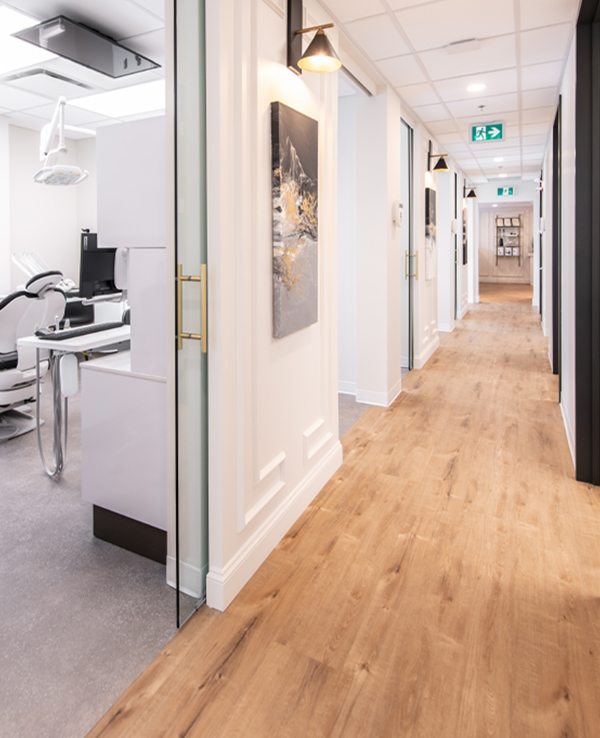
IV Sedation for Oral Surgery
At Chinook Dental, the comfort and well-being of our patients is our top concern. We understand that undergoing a procedure like wisdom teeth removal, dental implant placement, and complicated extractions can be daunting for a patient. That’s why IV Sedation is recommended over general anesthesia. Here are a few benefits.
- Faster Healing Time: IV sedation allows for faster recovery compared to general anesthesia.
- Lower Cost: IV sedation requires less equipment, reducing costs.
- Less Medical Risks: IV sedation has fewer risks and adverse side effects than general anesthesia because you remain semi-conscious during the procedure.
- Targeted Treatment: IV sedation will relax you deeply, but you will maintain your ability to respond to the surgeon’s instructions if necessary.
- Convenient Treatment: You can receive IV sedation from the comfort of the dental chair, the need to transition between operating rooms.
Platelet-Rich Fibrin (PRF) in Oral Surgery
At Chinook Dental, we are committed to using the most modern technology and dental techniques. Platelet-Rich-Fibrin (PRF) is one technique we are proud to offer our patients. Here’s why it matters.
- Increases Healing Time: PRF accelerates the healing process because it is rich in growth factors. This enhances the body’s ability to repair and regenerate tissue naturally.
- Enhanced Bone and Tissue Regeneration: PRF enhances the integration of grafts and implants with the body’s natural bone, providing a stronger and more stable result for the patient.
- Natural and Safe: PRF is services from your blood, making it a natural and minimally invasive treatment option with few risks of an adverse reaction.
- Reduced Post-Operative Pain: PRF supports the healing process by reducing discomfort and swelling. This leads to a more comfortable post-recovery process.
- Improved results: PRF helps with healing and improves the aesthetic and outcomes of your procedure.

What you need, when you need it
Not all tooth extractions are the same. Complex tooth extractions, such as those with curved tooth roots or teeth extractions that may involve the sinus, will require the help of an oral surgeon.
Most wisdom teeth, or third molars, tend to be impacted where some or all parts of the tooth remain embedded in the bone. Oral surgeons have the skill to remove wisdom teeth with minimal discomfort.
Oral surgeons play a crucial role in the placement of dental implants to replace missing teeth. This procedure requires meticulous planning to ensure the implant is properly embedded in the bone to support the prosthetic tooth adequately.
Oral surgeons are trained to manage facial injuries that lead to fractures, lacerations, and other serious conditions. They provide emergency care and reconstructive surgery to restore function and appearance.
Tissue samples are obtained by oral surgeons to analyze tissues for diagnosis and treatment of oral cysts, tumours, and lesions.
When should you see an oral surgeon?
You may require the expertise of an oral surgeon if you have:
- Severe Tooth Decay: Extensive tooth decay that can no longer be saved by dental fillings or root canal must be removed to prevent damage to other teeth and further infection. An oral surgeon may treat your case if it involves a complicated tooth extraction. This may mean that the tooth has curved, crooked, or hooked roots that can be challenging for a general dentist to do.
- Impacted Teeth: An impacted tooth can cause problems such as tooth decay, bad breath, jaw issues, and infection and cysts if left untreated. Some impacted teeth may be too deep in the bone or may be too close to other vital structures such as nerves and vessels. In such cases, an oral surgeon can facilitate a smooth removal with few to no complications.
- Missing Teeth Replacement: Lost or missing teeth can be replaced with dental implants. This involves the surgical placement of implant posts in the jawbone to help support the future artificial teeth, whether a crown, bridge, or denture.
- Jaw Misalignment: Misaligned jaws can make chewing, eating, and speaking difficult. Corrective jaw surgery may be performed to align the jaws and improve their form and function.
- Tooth Infections: Dental infections are caused by severe decay, gum disease, or poor oral hygiene. If this is left untreated, widespread infection may affect other areas of the head and neck. Surgical intervention is required to remove all diseased tissue and prevent further complications,
- Gum Infections: Advanced gum disease can lead to periodontitis which affects the bones surrounding the teeth. Eventually, this can cause tooth loss. Treatment involves cleaning the infected tissue, removing bacteria, reshaping the gums, and replacing damaged bone to allow for the area to heal.
- Tumours and Cysts: Benign and malignant growths of the mouth, jaws, and face are also examined by an oral surgeon to determine the most suitable treatment.
- Trauma and Injury: Accidents or injuries that damage the teeth, jaws, and facial bones require the help of an oral surgeon to repair the damage and restore function and appearance.
- Sleep Apnea: Some structural issues of the mouth and throat can cause breathing difficulties and may result in poor sleep quality. An oral surgeon may perform procedures to resolve this and to improve the airflow.
- Birth Defects: Congenital conditions, such as cleft lip and palate, can affect the growth and development of a child. To correct the defect, enhance functions for breathing, speaking, and eating, and improve life in the long-term, oral surgery should be done.
Some of these treatments involve a multi-speciality approach. This means that an oral surgeon is teamed up with other skilled practitioners to be able to provide the best treatment. The team is usually composed of the surgeon, anaesthesiologist, dentist, and surgery staff.

Why Choose Chinook Dental Group?
Chinook Dental Group is a Calgary-based dental practice that offers specialist solutions for oral surgical procedures.
Here is why our clinic stands out when it comes to oral surgery services:
- Experienced and Skilled Surgeons: We have surgeons and staff members who are highly qualified and experienced to provide suitable care and treatment for a wide range of surgical procedures.
- Modern Approaches and State-of-the-Art Technology: Our Calgary clinic is equipped with advanced technology that allows us to diagnose and treat complex surgical cases with precision and efficiency. We also use modern techniques, such as in sedation, to enhance your comfort during treatment.
- Commitment to High-Quality Care: Your comfort is our top priority. We will take the time to discuss the treatment plan, offer alternatives, explain the plan of care, and learn about your goals to ensure that you are well-prepared for your treatment.

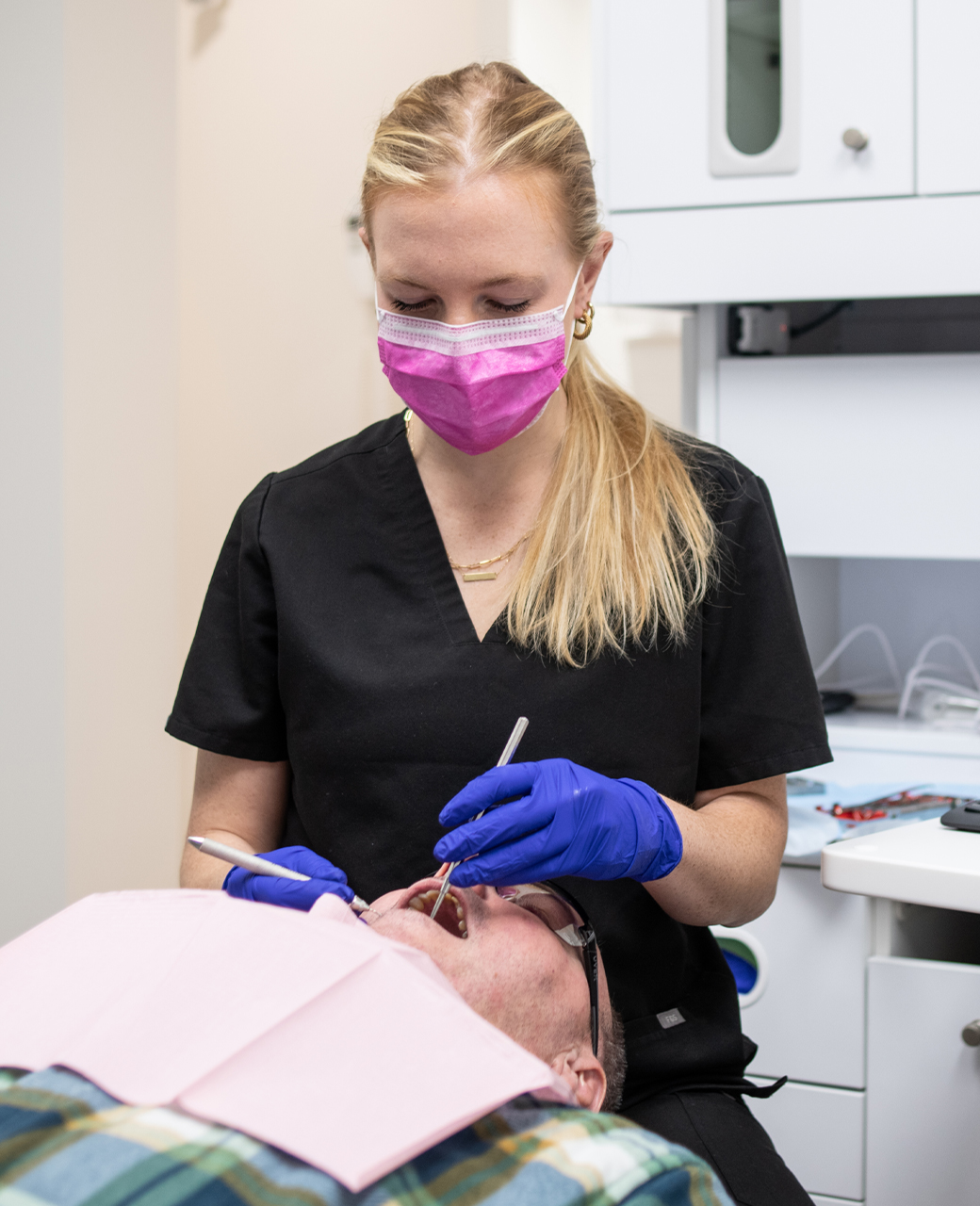
The Oral Surgery Process
While every surgery is different depending on what you need, the general process is usually the same for everyone. Here’s what to expect:
- Initial Consultation: The first step is a thorough assessment where your surgeon will evaluate your condition, discuss your medical and dental history, and obtain the imaging scans required to properly diagnose your case.
- Treatment Planning: From the consultation, a personalized treatment plan will be designed according to your unique needs and goals. This will be discussed in detail, along with your alternatives of the treatment, so you can fully understand the process.
- Surgical Procedure: Oral surgery requires administering anaesthesia or providing sedation to ensure a comfortable experience. This may be done through anesthesia, sedatives, or general anesthesia, depending on the complexity of the procedure. The more complicated the treatment, the longer the expected treatment time.
- Post-operative Care: After surgery, you and your caretaker will be provided with detailed instructions for at-home care. This is to enhance your comfort as you recover, lessen the complications, and improve the overall success of your treatment. This will include wound care, pain management, dietary and activity restrictions, and follow-up appointments.


